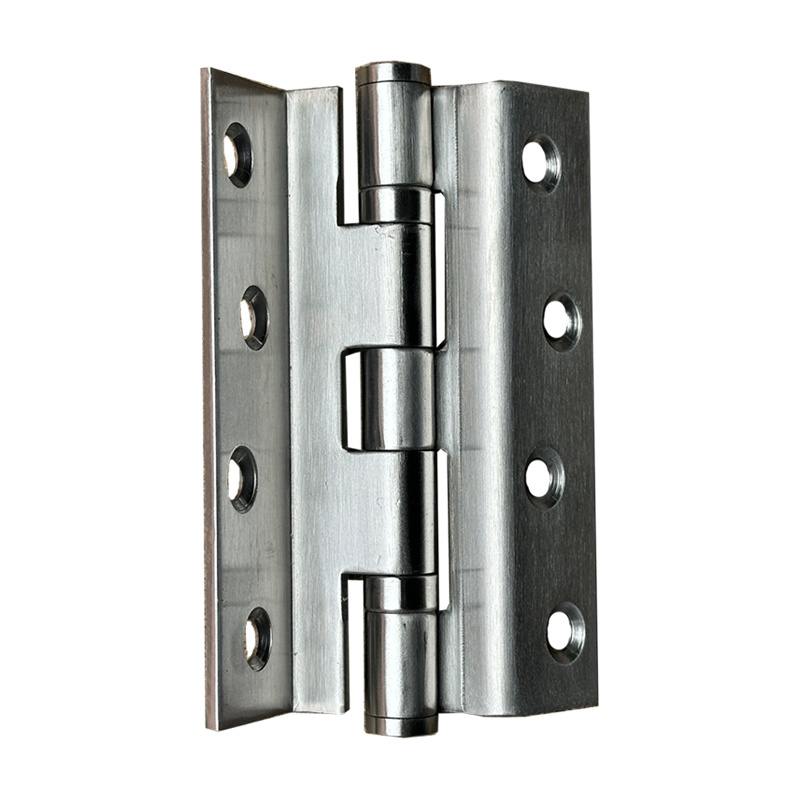Exploring the Benefits of Industrial Heavy Duty Door Hinges: A Comprehensive Guide
2025-09-21

Exploring the Benefits of Industrial Heavy Duty Door Hinges
Table of Contents
- Introduction to Industrial Heavy Duty Door Hinges
- What are Heavy Duty Door Hinges?
- Benefits of Industrial Heavy Duty Door Hinges
- 1. Exceptional Durability
- 2. Enhanced Security Features
- 3. Functional and Versatile Design
- 4. Easy Installation and Maintenance
- 5. Cost-effectiveness Over Time
- Applications of Industrial Heavy Duty Door Hinges
- Installation Tips for Heavy Duty Door Hinges
- Maintenance Best Practices
- Conclusion
- Frequently Asked Questions (FAQs)
Introduction to Industrial Heavy Duty Door Hinges
Industrial heavy duty door hinges play a critical role in the functionality and security of various structures. Whether used in factories, warehouses, or commercial buildings, these hinges are engineered to withstand immense weight and stress. We will delve deep into the benefits and features of these robust components, their applications, and what makes them an essential choice for any heavy-duty door setup.
What are Heavy Duty Door Hinges?
Heavy duty door hinges are specifically designed to support and hinge doors that are significantly heavier than standard doors. Constructed from high-strength materials such as stainless steel or hardened steel, these hinges can endure frequent use and resist wear and tear over time. They come in various sizes and designs to accommodate different door types, including entry doors, warehouse doors, and even specialized access points in industrial settings.
Benefits of Industrial Heavy Duty Door Hinges
1. Exceptional Durability
One of the most significant advantages of industrial heavy duty door hinges is their **exceptional durability**. Designed to handle immense loads, these hinges resist bending, breaking, and deformation. This durability translates to a longer lifespan, making them a reliable choice for high-traffic areas where doors are frequently opened and closed.
2. Enhanced Security Features
Security is paramount in any industrial setting. Heavy duty door hinges offer enhanced security features compared to standard hinges. Many models come with anti-tamper designs and are equipped with features that prevent unauthorized access. The solid construction provides a barrier against break-ins, ensuring that your facilities remain secure.
3. Functional and Versatile Design
The **functional design** of heavy duty door hinges makes them suitable for various applications. They are available in numerous configurations, including continuous hinges, butt hinges, and pivot hinges, allowing for flexibility in installation. This versatility means you can choose the right hinge type to match your specific door requirements, whether it's for a fire door, security door, or a simple access door.
4. Easy Installation and Maintenance
Installing heavy duty door hinges can be straightforward, especially when following manufacturer guidelines. With pre-drilled holes and clear instructions, even those with minimal experience can successfully install these hinges. Additionally, maintenance is often minimal; regular lubrication and inspection can help ensure that they remain in peak condition for years.
5. Cost-effectiveness Over Time
While the initial investment in industrial heavy duty door hinges may be higher than standard options, their **cost-effectiveness over time** is undeniable. The durability and longevity of these hinges mean fewer replacements and repairs, resulting in a lower total cost of ownership. Organizations can save significantly by investing in high-quality hinges that require minimal upkeep.
Applications of Industrial Heavy Duty Door Hinges
Industrial heavy duty door hinges find usage across various sectors due to their robust design and versatility. Here are some common applications:
- **Warehouses**: Where large doors are frequently operated, heavy duty hinges ensure smooth movement and stability.
- **Commercial Buildings**: Retail stores and offices benefit from the security and functionality of these hinges.
- **Manufacturing Facilities**: Often subjected to harsh conditions, these hinges withstand heavy usage and environmental stress.
- **Fire Rated Doors**: Many heavy duty hinges are certified for use with fire doors, providing essential safety features.
Installation Tips for Heavy Duty Door Hinges
Installing heavy duty door hinges requires attention to detail to ensure proper functionality. Here are some tips to consider:
1. **Choose the Right Size**: Ensure the hinge dimensions are appropriate for the door size and weight.
2. **Positioning**: Install hinges at equal distances from the top and bottom of the door, typically two to three per door.
3. **Use Quality Screws**: Opt for high-strength screws to secure hinges firmly, preventing loosening over time.
4. **Check Alignment**: Ensure the door is properly aligned to avoid undue stress on the hinges, which can lead to premature failure.
Maintenance Best Practices
To prolong the lifespan of your heavy duty door hinges, consider these maintenance practices:
- **Regular Lubrication**: Use a silicone-based lubricant to keep hinges operating smoothly.
- **Inspect for Wear**: Regularly check for signs of wear or damage, and replace any compromised hinges immediately.
- **Cleaning**: Clean hinges periodically to remove dirt and debris that could impede function.
- **Tightening Screws**: Regularly tighten screws to maintain secure attachment and prevent sagging.
Conclusion
Industrial heavy duty door hinges are an indispensable component in ensuring the functionality, security, and longevity of heavy doors across various applications. Their durability, enhanced security features, versatile designs, and cost-effectiveness make them a wise investment for industrial settings. By understanding their benefits and adhering to proper installation and maintenance practices, organizations can enhance their operational efficiency and safeguard their facilities effectively.
Frequently Asked Questions (FAQs)
1. What are the main differences between standard and heavy duty door hinges?
Heavy duty door hinges are designed to bear significantly more weight and stress compared to standard hinges, making them more suitable for high-traffic and security-sensitive environments.
2. Can heavy duty door hinges be used on residential doors?
Yes, heavy duty door hinges can be used on residential doors, especially for entry points that require enhanced security and durability.
3. How often should I lubricate my heavy duty door hinges?
It is recommended to lubricate heavy duty door hinges every 6 months or as needed, especially in high-use environments.
4. Are there specific heavy duty hinges for fire-rated doors?
Yes, many manufacturers offer heavy duty hinges specifically designed for use with fire-rated doors, adhering to safety standards.
5. What materials are heavy duty door hinges typically made from?
Common materials for heavy duty door hinges include stainless steel and hardened steel, known for their strength and resistance to corrosion.
PREVIOUS:
Contact Us
E-mail :
ivyhinge@163.com
Phone/WhatsApp:
+86 18924942354
Address:
XIAOLAN TOWN,ZHONGSHAN cIty,GUANGDONG province,China



